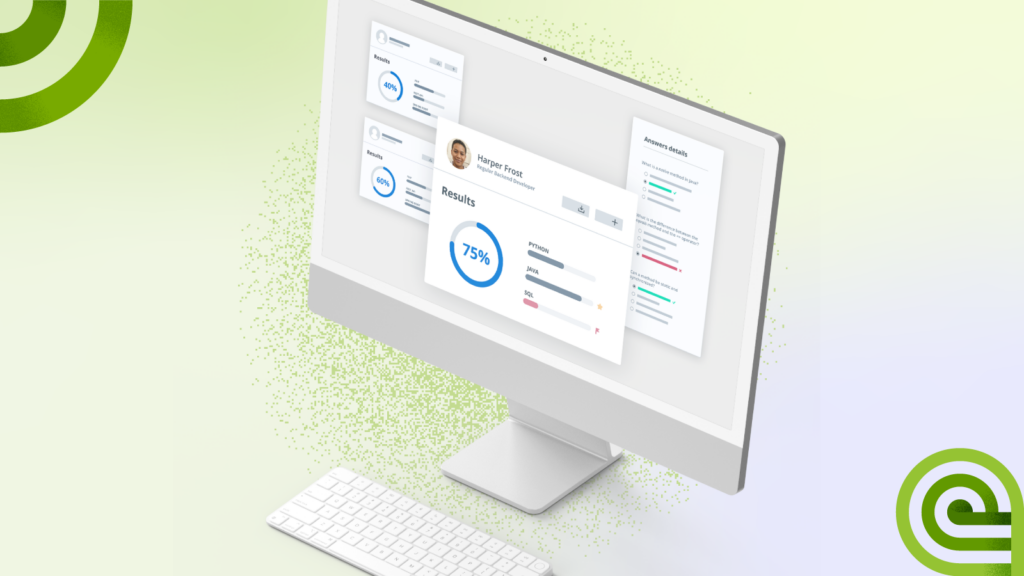
Purpose and impact in evaluation of skills assessment tools

Have you ever taken a moment to reflect on the comprehensive and intricate mechanisms that organizations implement to evaluate talent, assess potential, and sift through extensive volumes of data?
How do these entities ensure that they make decisions that are not only informed but also predictive of future successes?
The answer lies in the captivating world of skill assessment. These methods, often overlooked, are the backbone of many strategic decisions.
They serve as the behind-the-scenes powerhouse, enabling establishments to function with unmatched accuracy, precision, and a forward-thinking vision.
By embracing skill assessment tool, organizations are equipped with tools that offer a deeper understanding of both current scenarios and potential future trajectories, ensuring they remain at the forefront of their respective industries.
Introduction to skills assessment tools
Skills assessment tools are designed to evaluate an individual’s abilities in specific areas. They offer an objective measurement of knowledge, skills, and competencies, providing valuable data for various purposes, such as:
- Hiring and recruitment: Identifying the best candidates from a pool of applicants.
- Employee development: Pinpointing skill gaps and providing targeted training.
- Performance evaluation: Providing insights for performance reviews and promotions.
- Succession planning: Identifying high-potential employees and their future roles.
The importance of assessing employee skills
In today’s rapidly changing work environment, where skills can quickly become outdated, assessing employee skills is more critical than ever. By understanding the existing skill sets within an organization, businesses can:
- Optimize workforce planning: Ensure the organization has the right people with the right skills to meet current and future needs.
- Boost employee engagement: Employees feel more valued and motivated when they are given opportunities to develop and grow their skill sets.
- Improve productivity and efficiency: When employees possess the skills required for their roles, they perform their tasks more effectively.
- Gain a competitive edge: Organizations with a skilled workforce are better positioned to innovate, adapt to change, and outperform their competitors.
Understanding the different types of skills assessments
Skills assessment tools encompass a wide array of formats and methodologies, each tailored to evaluate different types of skills. This variety ensures you can choose the most effective tool for your specific needs. Let’s delve into some common types:
Technical skills
These assessments evaluate an individual’s proficiency in specific technical areas, such as programming languages, software applications, or mechanical aptitude. Examples of technical skills assessments include:
- Coding challenges: Assessing a candidate’s ability to write and debug code in a specific programming language.
- Software simulations: Evaluating a candidate’s proficiency in using specific software programs, such as Microsoft Excel or Adobe Photoshop.
- Knowledge tests: Measuring an individual’s understanding of technical concepts and principles.
Soft skills
Unlike job-specific technical skills, soft skills are transferable across various roles and industries. They relate to how an individual interacts with others, approaches their work, and manages their time. Examples of soft skills assessments include:
- Situational judgment tests: Presenting candidates with realistic scenarios and asking them to choose the most appropriate course of action.
- Behavioral interviews: Assessing a candidate’s past behavior as an indicator of their future performance.
- Personality questionnaires: Measuring personality traits, such as teamwork, communication, and problem-solving abilities.
Cognitive abilities
These assessments measure an individual’s mental capabilities, such as their ability to learn, solve problems, and think critically. These assessments provide insights into an individual’s potential to learn new information and adapt to different situations. Examples of cognitive ability assessments include:
- Aptitude tests: Assessing general intelligence, verbal reasoning, and numerical abilities.
- Logical reasoning tests: Evaluating an individual’s ability to identify patterns, analyze arguments, and draw logical conclusions.
- Spatial reasoning tests: Measuring an individual’s ability to visualize and manipulate objects in space.
Personality assessments
While not strictly skills assessments, personality assessments provide valuable insights into an individual’s work style, preferences, and how they interact with others. Understanding personality traits helps create compatible teams and predict job satisfaction. Some commonly used personality assessments include:
- Myers-Briggs type indicator (MBTI): Categorizes individuals into 16 personality types based on their preferences for extraversion/introversion, sensing/intuition, thinking/feeling, and judging/perceiving.
- DiSC assessment: Measures an individual’s dominance, influence, steadiness, and conscientiousness, providing insights into their communication style and work preferences.
- Enneagram: Identifies nine interconnected personality types, each with its own set of motivations, fears, and desires.

Evaluation criteria for choosing the best skill assessment tool
Finding the perfect skill assessment tool for your company is crucial to building strong teams and making informed hiring decisions. With so many options available, it’s essential to know what to look for before investing in a particular platform. When evaluating a skill assessment tool consider these key factors to make the best choice for your organization.
User interface and experience
A user-friendly interface is critical for both the test taker and the administrator. The platform should be intuitive and easy to navigate, allowing candidates to focus on demonstrating their skills without struggling with a clunky interface.
Assessment accuracy and relevance
The assessment tool should accurately measure the skills and competencies relevant to the job. Look for tools like DevSkiller TalentScore, which uses real-world programming assignments to evaluate technical skills. DevSkiller, a leading TalentTech solution, offers a range of assessments covering various technologies, including Cloud, Cybersecurity, and Data Science. With a library of over 5,000 tasks, you can be confident in finding assessments that align with your specific requirements.
Cost and subscription plans
Consider your budget and the scalability of the tool. Evaluate the pricing plans and ensure they align with the size of your team and the number of assessments you need.
Customization options
Each organization has unique needs. Look for a skill assessment tool that offers customization options. Can you tailor assessments to match specific job roles or skills frameworks? The ability to customize ensures the assessments are relevant and effectively evaluate the skills that matter most to your organization. DevSkiller, for example, allows for customization through its TalentScore platform, enabling you to create assessments that mirror real-world job scenarios.
Support and resource materials
Implementing and using a new tool can raise questions. Choose a provider that offers excellent customer support and provides resources like documentation and tutorials. This will ensure a smooth experience and allow you to get the most out of your investment.

Benefits of implementing skills assessment in the workplace
Let’s dive into the advantages of integrating skills assessment tools into your company’s workflow.
Enhanced employee development and engagement
Skills assessments provide valuable insights into your employees’ strengths and areas for improvement. This data allows for creating targeted training programs that address specific skill gaps and foster professional growth.
But that’s not all! By understanding their strengths, employees can focus on tasks and projects that align with their abilities, leading to increased job satisfaction and engagement. A study published in the Journal of Applied Psychology found that employees who perceive their skills are being utilized effectively are 67% more likely to be engaged in their work.
More effective hiring and recruitment processes
Skills assessment tools can revolutionize your hiring process. By incorporating them into the early stages of recruitment, recruiters can objectively evaluate candidates based on their demonstrated abilities, not just their resumes. This allows for a more efficient screening process, ensuring that only the most qualified individuals move forward. A study conducted by Harvard Business Review found that using skills assessments during the hiring process can reduce employee turnover by as much as 46%.
Improved workforce performance analytics
Skills assessments provide a data-driven approach to workforce planning. By analyzing the collective skills data of your workforce, you gain valuable insights into the overall strengths and weaknesses within your organization. These insights allow you to identify skill gaps, anticipate future talent needs, and make informed decisions regarding training and development initiatives, leading to a more competent and adaptable workforce.

Impact in development
Personal growth and learning
Much like how a mirror faithfully presents our reflection, skills assessment software act as revealing windows into our competencies, knowledge base, and potential areas ripe for development.
They don’t merely present a snapshot; they offer a dynamic, evolving portrait of our progress and potential.
Serving as compasses on our educational and professional odysseys, these tools keep us aligned with our goals, highlighting milestones achieved and signposting areas that beckon further exploration.
In this continuous journey of growth and discovery, skills assessment tool remain our steadfast guides, ensuring that each step taken is purposeful and in the right direction.
Organizational development
For the corporate world, skills assessment tools are not just aids but foundational pillars underpinning strategic foresight.
They function as the eyes and ears of a business, keenly observing market shifts, appraising team dynamics, and charting out visionary goals.
These tools provide the metrics and insights that shape decision-making, ensuring businesses are not only reactive but also proactive in their approach.
Ponder this analogy: navigating a vast ocean aboard a ship, devoid of a compass or any navigational aids. I